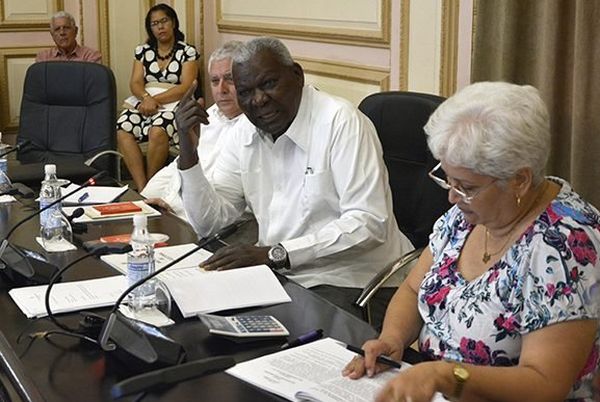
Cuban lawmakers on Thursday learned some details of the draft Electoral Law that will be submitted to legislators in territorial meetings from June 21 to 26 in order to encourage debate.
The document proposes new aspects in relation to the current Law No.72 of October 29, 1992, Electoral Law, as of the Electoral Reform and the promulgation of the new Constitution of the Republic this year.
Upon presenting the text, Jose Luis Toledo, president of the Commission on Constitutional and Legal Affairs at the National People’s Power Assembly (Parliament), said that the variation in the amount of the State Council members highlights among the new features.
The document will be made up of 21 members, including its leadership, which is a change taking into account that the Council of State is so far composed of 31, the official said.
According to Toledo, during the ceremony in which the National Assembly will be constituted, the President of the Republic takes possession of his post and acts according to what is provided by the parliament.
After the text is presented to legislators and regional authorities by videoconference from the National Capitol in the presence of the president of the Cuban Parliament, Esteban Lazo, the document recognizes two periodic elections: the municipal ones, to elect the delegates to the municipal assemblies of the People’s Power, its President and Vice President; and the national ones.
The latter includes the election of legislators to the National Assembly of People’s Power, its President, Vice President, Secretary, other members of the Council of State, and the President and Vice President of the Republic, keeping the same principles as those in force for its implementation.
The document also modifies the proportion established in the current law for the election of legislators. One legislator is elected for every 30,000 inhabitants of a municipality or fraction greater than 15,000, and in case the number of inhabitants in that municipality is 45,000 or less than that number, two legislators are always elected.
The new text —which is available since June 19 on the Parliament’s website— is made up of 16 titles, 45 chapters, 32 sections, five special provisions, six transitory provisions, two final provisions and 290 articles in total.
 Escambray ENGLISH EDITION
Escambray ENGLISH EDITION





Escambray reserves the right to publish comments.